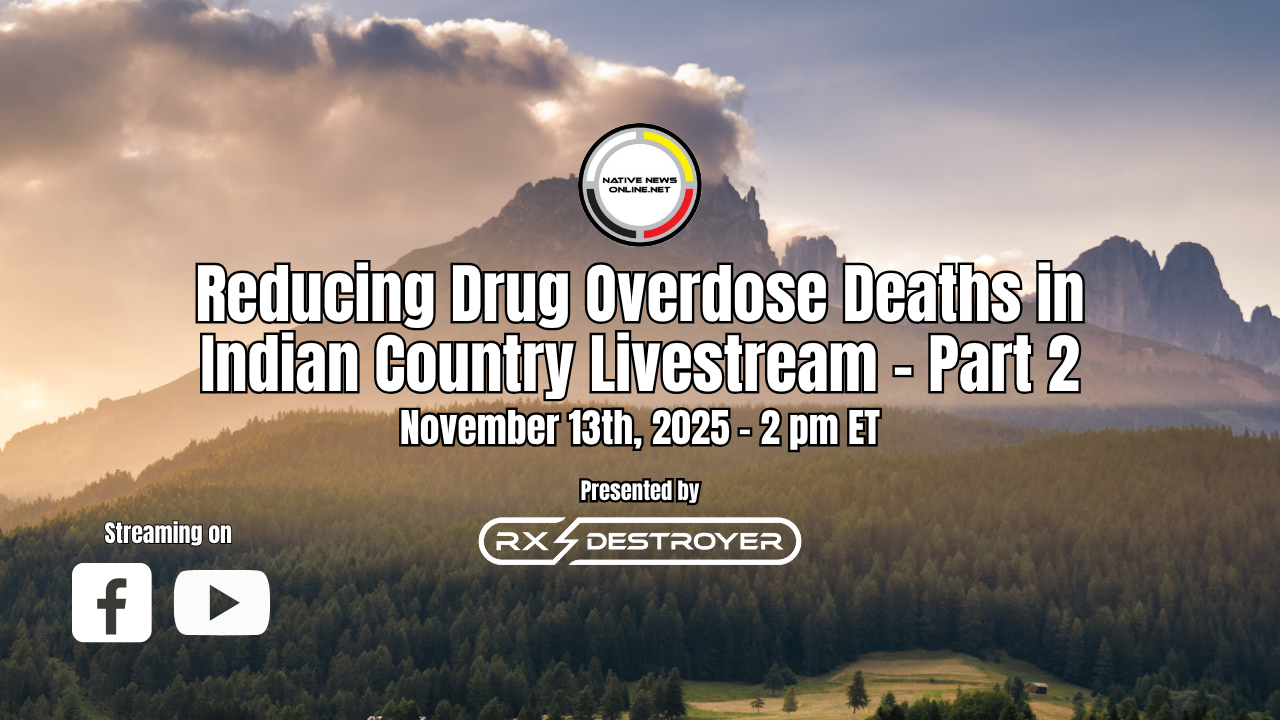
- Details
- By Native StoryLab
On Thursday, November 13, join us for a vital livestream event tackling a crisis that’s claiming lives in Native communities: overdose deaths. Our panel will bring together voices to explore how we can walk the path from tragedy to prevention, healing, and renewed hope.
“Reducing Drug Overdose Deaths in Indian Country, Part II – Getting to a Healthy Tribal Community,” will dig into the drivers of the epidemic and systemic access challenges and showcase strategies grounded in Indigenous values, community leadership, and self-determination. In short: this isn’t just about numbers, it’s about lives, stories, and collective resilience.
The overdose crisis has hit tribal nations disproportionately, leaving families, elders, youth, and entire communities grieving. The heart of the conversation will focus on meaningful solutions and honoring Indigenous knowledge in healing.
Panelists will include:
Chairman Matthew Wesaw, Pokagon Band of Potawatomi
Mark Cruz (Klamath) Senior Advisor – Immediate Office of the Secretary (IOS) U.S. Department of Health and Human Services (HHS)
Meranda - Lummi Youth Council
James - Lummi Youth Council
Together, they’ll answer the question: What works when the mainstream system falls short?
Finally, the livestream will provide actionable resources: where to get help, how to start peer-support groups, and how to involve youth. The aim is not only awareness, but empowerment.
Too many lives have already been lost. But this livestream is a call to action: show up, listen, engage, and be part of the solution. Join us on November 13 and help turn hope into healing.
Watch on Facebook, Youtube, or come back to this article and watch below.
Help us tell the stories that could save Native languages and food traditions
At a critical moment for Indian Country, Native News Online is embarking on our most ambitious reporting project yet: "Cultivating Culture," a three-year investigation into two forces shaping Native community survival—food sovereignty and language revitalization.
The devastating impact of COVID-19 accelerated the loss of Native elders and with them, irreplaceable cultural knowledge. Yet across tribal communities, innovative leaders are fighting back, reclaiming traditional food systems and breathing new life into Native languages. These aren't just cultural preservation efforts—they're powerful pathways to community health, healing, and resilience.
Our dedicated reporting team will spend three years documenting these stories through on-the-ground reporting in 18 tribal communities, producing over 200 in-depth stories, 18 podcast episodes, and multimedia content that amplifies Indigenous voices. We'll show policymakers, funders, and allies how cultural restoration directly impacts physical and mental wellness while celebrating successful models of sovereignty and self-determination.
This isn't corporate media parachuting into Indian Country for a quick story. This is sustained, relationship-based journalism by Native reporters who understand these communities. It's "Warrior Journalism"—fearless reporting that serves the 5.5 million readers who depend on us for news that mainstream media often ignores.
We need your help right now. While we've secured partial funding, we're still $450,000 short of our three-year budget. Our immediate goal is $25,000 this month to keep this critical work moving forward—funding reporter salaries, travel to remote communities, photography, and the deep reporting these stories deserve.
Every dollar directly supports Indigenous journalists telling Indigenous stories. Whether it's $5 or $50, your contribution ensures these vital narratives of resilience, innovation, and hope don't disappear into silence.
 The stakes couldn't be higher. Native languages are being lost at an alarming rate. Food insecurity plagues many tribal communities. But solutions are emerging, and these stories need to be told.
The stakes couldn't be higher. Native languages are being lost at an alarming rate. Food insecurity plagues many tribal communities. But solutions are emerging, and these stories need to be told.
Support independent Native journalism. Fund the stories that matter.
Levi Rickert (Potawatomi), Editor & Publisher
